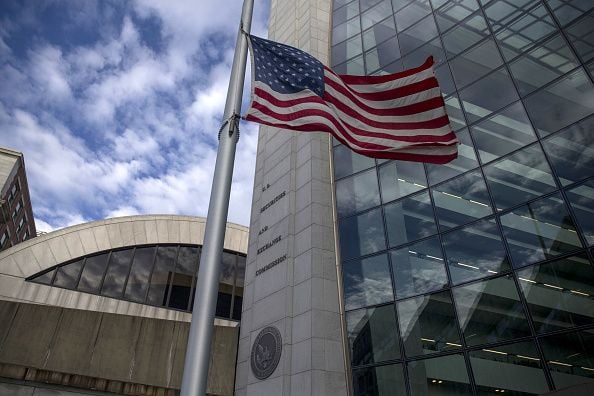

The Securities and Exchange Commission on Wednesday expanded the pool of sophisticated investors who can purchase unregistered securities, a move that drew criticism from the two Democratic SEC members and investor advocates.
Under the rule, which was approved 3-2, the definition of an accredited investor is enlarged to include people who have professional certifications – such as securities licenses – employees of a private fund who invest in that fund, limited liability companies and family offices with at least $5 million in assets, Indian tribes and spouses of accredited investors.
Anyone holding Series 7, Series 65 or Series 82 securities licenses would qualify as an accredited investor. The SEC said it could add more certifications, designations or credentials in the future.
Under current rules, people must have $1 million in net worth beyond the value of a home or earn $200,000 or more annually to qualify as accredited investors who can buy unregistered securities, or private placements.
“Today’s amendments are the product of years of effort by the commission and its staff to consider and analyze approaches to revising the accredited investor definition,” SEC Chairman Jay Clayton said in a statement. “For the first time, individuals will be permitted to participate in our private capital markets not only based on their income or net worth, but also based on established, clear measures of financial sophistication.”
The two SEC Democratic commissioners, Allison Herren Lee and Caroline Crenshaw, voted against the rule.
They said the measure fails to index the accredited investor threshold for inflation, which adds many ordinary investors, especially elderly ones, to the pool. They also asserted that the SEC failed to assess potential investor harm posed by the private market, where many offerings are opaque and illiquid and where fraud frequently occurs.
“With its actions today, the Commission continues a steady expansion of the private market, affording issuers of unregistered securities access to more and more investors without due regard for the risks they face, and without sufficient data or analysis to ensure that our policy choices are grounded in fact rather than supposition,” Lee and Crenshaw said in a statement.
INVESTOR PROTECTION CONCERNS
Investor advocates don’t necessarily oppose opening the accredited investor definition to those with licenses and expertise, said Barbara Roper, director of investor protection at the Consumer Federation of America. It’s how the SEC went about the rulemaking that is causing concern.
“It’s controversial because of what it doesn’t do rather than what it does do,” Roper said. “The real issue is that the SEC continues to refuse to acknowledge that the accredited investor definition is vastly overinclusive. [The agency] responds exclusively to issuers who want to expand their ability to market their securities to the general public.”
But a trade association that supports alternative investments said the SEC is acting appropriately in casting the net of sophistication to cover more investors.
“The SEC took this first step with the balance between investor protection and capital formation in mind,” said Anya Coverman, general counsel at the Institute for Portfolio Alternatives.
The IPA hopes the SEC is not done. It would like to see clients of financial advisers qualify as accredited investors and also wants the SEC to allow the use of private funds in retirement plans.
“This is an important first step to updating the definition, but the commission could have gone farther,” Coverman said. “The IPA supports the commission’s invitation for further public feedback and comment. We also encourage the commission to make suggested changes related to retirement plans in rulemaking this year.”
MIXED REACTION FROM ADVISERS
Investment advisers had mixed reactions to accredited investor reform.
Salim Boutagy, an adviser at Congress Wealth Management, backed the move because it could increase use of alternative investments.
“Alternatives are an important asset class to have in portfolios across the investor spectrum,” Boutagy said. “I would bet that a new, more accessible alternative investment product line will be developed. That would be hugely beneficial to a lot of folks.”
But Stephen Lovell, president of Lovell Wealth Management, said the new rule doesn’t touch on whether newly deemed sophisticated investors can withstand a significant drop in the value of their investments.
“It may not be in the best interests of small investors,” Lovell said. “The ability to absorb a punch is important, and this rule doesn’t address that.”
NEED FOR INVESTOR EDUCATION
The key to making expansion of private market participation work is investor education, said Lawrence Calcano, chief executive of iCapital Network, an alternative investment platform.
“We think it’s really critical that there is a significant commitment to education and ensuring that people understand the idiosyncrasies and features of the products they’re investing in,” Calcano said. “For this to be successful, it has to be a good experience for the investor.”
The accredited investor rule goes into effect 60 days after it's published in the Federal Register. The agency is poised to do more private placement reform. Another controversial proposal is pending that would further open the market to ordinary investors.

Former Northwestern Mutual advisors join firm for independence.

Executives from LPL Financial, Cresset Partners hired for key roles.

Geopolitical tension has been managed well by the markets.

December cut is still a possiblity.

Canada, China among nations to react to president-elect's comments.
Streamline your outreach with Aidentified's AI-driven solutions
This season’s market volatility: Positioning for rate relief, income growth and the AI rebound
